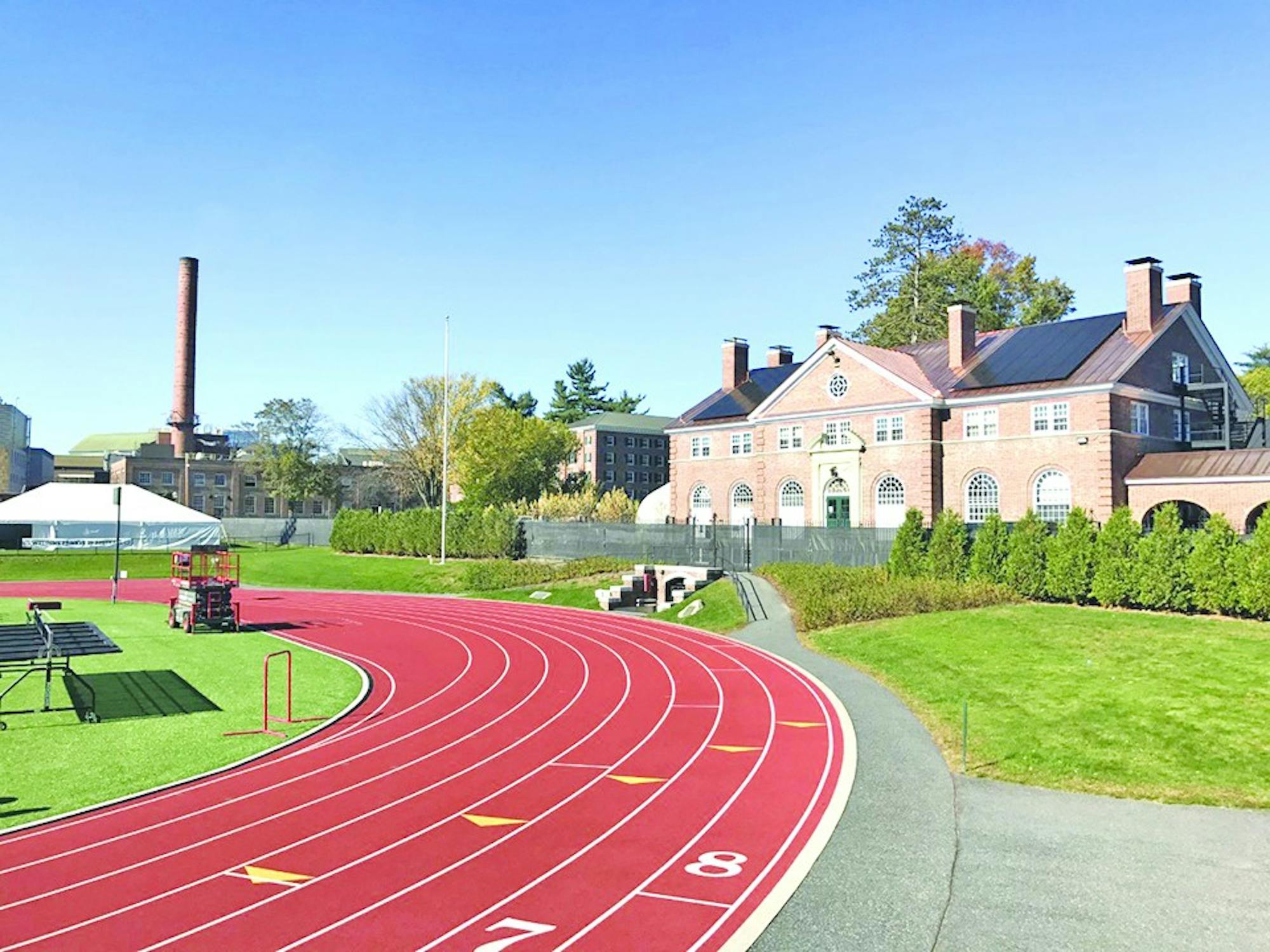ReVision Energy, a renewable energy contract firm, installed 450 solar panels on the roof of Berry Sports Center last week, according to Dan Weeks, ReVision’s director of market development.
Dartmouth director of sustainability Rosi Kerr ’98 expressed enthusiasm for the sustainable nature of the project.
“We all rely heavily on energy,” Kerr said. “Our life without energy wouldn’t be very good. Imagine Dartmouth without being heated and warm and dry and lit, and you don’t have the ability to charge your phone or your computer. The question is how can we continue to generate and have access to energy in order to be a cutting-edge institution … but be able to do that in a sustainable way.”
Berry Sports Center joins Davis Varsity House and Maclean Engineering Sciences Center, which were outfitted with 60 solar panels in September and 179 solar panels in August, respectively, as one of the first buildings on campus to go solar, according to Abbe Bjorklund, Dartmouth director of engineering and utilities.
Of these three buildings, Berry Sports Center can generate the most solar electricity per year for the school at 156,000 kilowatt hours annually, Weeks said. He also noted that Davis Varsity House can generate up to 20,725 kWh of solar electricity per year while MacLean Engineering Sciences Center can provide up to 70,000 kWh.
Bjorklund said that the College is working on plans to install solar panels on approximately nine other buildings in 2018. If these solar panels are installed, Bjorklund estimates that about 1 percent of the College’s electricity will be supplied by campus-generated solar energy.
The College is also considering installing a large-scale, ground-mounted solar system on an off-campus site, which will provide much more electricity than rooftop solar-panels, Bjorklund added. However, she said this plan is in the preliminary phase — the school has identified a number of potential sites, but plans will not come to fruition for at least a year or two, she said.
“I think it would be reasonable to say that we might be able to get as much as 20 percent or so of our electricity consumption coming from solar on or near our campus [in the near future],” Kerr said.
College President Phil Hanlon announced in April that the College will be pursuing low-carbon sustainability goals over the coming years. Included in the College’s goals is a 50 percent reduction in greenhouse gas emissions from campus operations by 2025.
The College also has financial incentives to install these systems, according to Weeks. ReVision owns the panels and is responsible for installation and maintenance costs. According to Weeks, ReVision then sells the generated electricity to the College at a discounted rate. He said that after seven years, the College can purchase the solar panels from ReVision at a discounted rate, which is an appealing option because the College can save as much as $600,000 for each rooftop system.
Kerr said the school plans to exercise this buyback option.
“If the College chooses to undertake larger installations currently under consideration, the savings and positive environmental impact will increase very substantially,” Weeks said.
Although Kerr said the College ranks in the “middle of the pack in the Ivy-plus” League in terms of energy consumption, she is confident that the campus will become more sustainable. She added that the town of Hanover, which announced a few months ago that the town will attempt to transition to 100 percent renewable energy, has approved all of the College’s plans so far to “green Dartmouth’s grid.” Therefore, she said she is confident that future plans to make the campus more sustainable will be approved by the town.
“I want Dartmouth to be the best at [curbing greenhouse gas emissions],” Kerr said. “I care passionately that we get really good at this. It’s core to our identity. We’re really good problem solvers, and we’re a school that, for a long time, has had a big impact on environmental science and biological science, and we care about our location … I think it makes a lot of sense for us to step up.”




